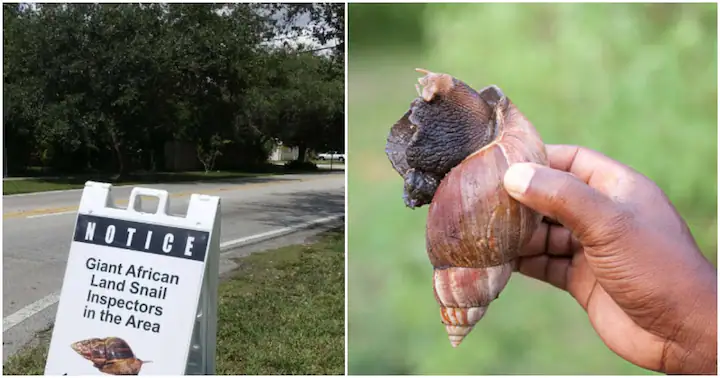In a concerning development, the Florida Department of Agriculture and Consumer Services (FDACS) has officially confirmed the presence of giant African land snails in the New Port Richey area. Christina Chitty, the public information director at FDACS, has emphasized the potential health risks associated with these snails, as they have the ability to carry parasites that can cause meningitis in humans.
The proliferation of these snails can be attributed to the illegal pet trade, as it is strictly prohibited to own them as pets within the United States. Unfortunately, the demand for these exotic creatures has fueled their increased population, posing a significant threat to local ecosystems and public health.
The health hazards posed by the giant African land snails cannot be understated. These snails have the potential to transmit parasites known to cause meningitis, a serious and potentially life-threatening illness. As such, residents are strongly advised to exercise caution and refrain from direct contact with the snails unless wearing protective gloves.
The FDACS, recognizing the urgency of the situation, has established a hotline for residents to report any sightings of these invasive snails. Prompt reporting will facilitate the department’s efforts in tracking and managing the spread of these pests, mitigating their impact on both human health and the environment.
The discovery of giant African land snails in the New Port Richey area serves as a stark reminder of the consequences of the illegal pet trade and the importance of responsible ownership. It is crucial for residents to remain vigilant, adhere to regulations, and promptly report any sightings to the appropriate authorities to prevent further proliferation.
As efforts are underway to address this issue, collaboration between government agencies, law enforcement, and the community will play a pivotal role in curbing the spread of these invasive snails. By raising awareness, enforcing regulations, and promoting responsible pet ownership, steps can be taken to safeguard public health and protect the delicate balance of local ecosystems.




